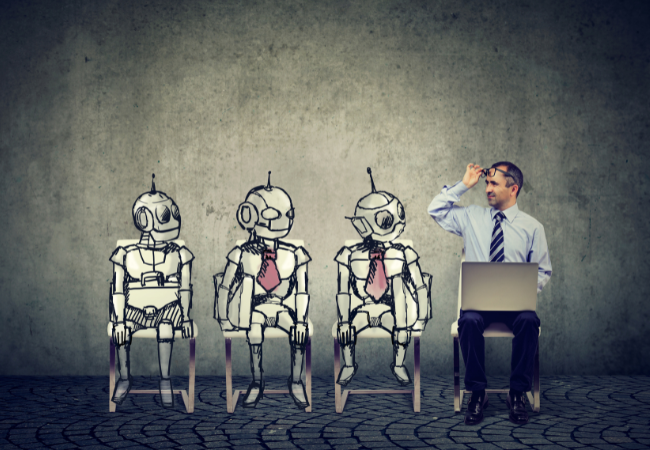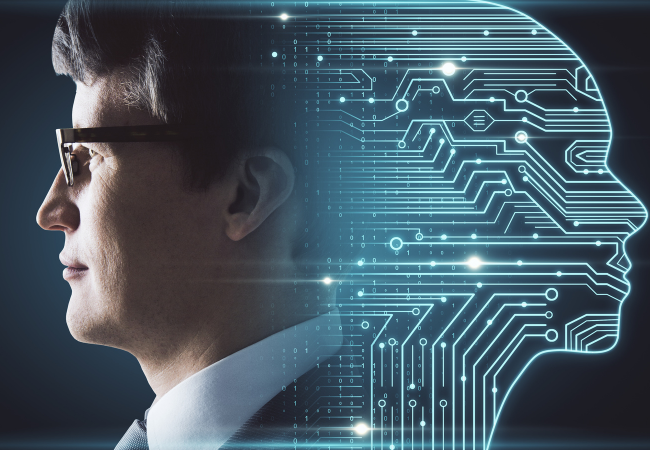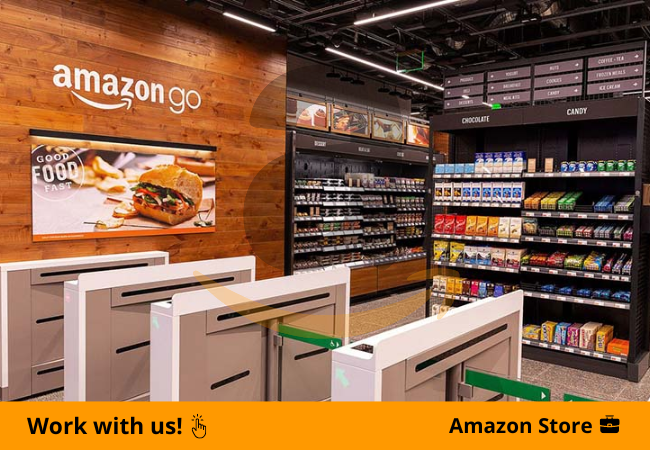The advent of Artificial Intelligence (AI) and its subsequent integration into various industry sectors heralds a transformative phase that stands to redefine the future of work. This integration is not only a discussion about the AI impact on employment but also a revelation of the role that smart machines play in shaping job landscapes. By reimagining the essence of tasks that once fell within the human domain, AI injects a level of disruption previously unseen. It’s an era where the dichotomy of job loss versus job creation is more pronounced, challenging workers and businesses to adapt with agility and foresight.
The likelihood of Artificial Intelligence disrupting jobs is both an opportunity and a conundrum; while it foreshadows the cessation of certain roles, it simultaneously paves the way for the emergence of innovative career paths and the evolution of existing jobs. A balanced perspective is required to navigate the uncertainty posed by automation and to seize the possibilities for growth and development. The conversation around the future of work with AI is intense and multifaceted, with the potential to shape economies and influence the lives of many across the globe.
Carregando anúncio...
Intelligence and Automation on Jobs
Key Takeaways
- The shaping force of AI on the future job market is significant, necessitating a reevaluation of employment strategies.
- Understanding the AI impact on employment is critical for workers and industries to stay competitive and relevant.
- The dual nature of Artificial Intelligence, as both a job disruptor and a creator, requires a proactive approach to workforce development.
- The narrative of the future of work with AI accentuates the need for a skill shift and the value of lifelong learning.
- Stakeholders across various sectors must consider the data-driven impact of AI and automation to form comprehensive workforce policies.
- There is an escalating need for dialogue and action plans to mitigate employment risks related to the rise of smart automation.
- Case studies and reports from trusted sources offer indispensable insights into the dynamic interplay between AI and the future workforce.
Exploring the Current Landscape of AI in the Workforce
The dawn of the AI era has brought transformative changes to the business landscape, prompting a reconsideration of job evolution with automation. As companies continue to seek improvements in efficiency and innovation, the employment implications of AI are becoming increasingly significant in sectors ranging from manufacturing to customer service.
Real-World Examples of AI Innovations
At the forefront of this revolution, companies like IBM have leveraged AI to enhance predictive maintenance in manufacturing, which in turn minimizes downtime and reduces costs. Similarly, Google has revolutionized customer interaction by integrating AI into analytics, thereby empowering businesses to make informed decisions based on consumer behavior patterns. These implementations highlight how the automation effects on workforce are not merely about replacement but also about enhancement and opportunity.
The Sectors Most Affected by AI and Automation
The manufacturing and service sectors have witnessed a pronounced impact due to AI advancements. Automation has replaced assembly line jobs with robots that work tirelessly, while AI-driven software solutions are increasingly handling customer service inquiries. This shift raises vital questions about the employment implications of AI, as workers find the need to adapt to coexist with intelligent systems.
Statistics: AI Adoption in Business Operations
Analysis from market research powerhouses like Gartner and Forrester has shed light on the rate of AI adoption in various business operations. The data, delineated in the table below, illustrates a surge in AI integration across industries, redefining job roles and responsibilities.
| Industry | Percentage of Businesses Integrating AI | Innovative AI Applications in Sector |
|---|---|---|
| Manufacturing | 37% | Predictive maintenance, Robotics, Quality control |
| Healthcare | 32% | Diagnostic algorithms, Patient data analysis, Care personalization |
| Retail | 28% | Customer service chatbots, Inventory management, Personalized shopping experiences |
| Finance | 27% | Fraud detection, Risk assessment, Algorithmic trading |
| Transportation | 22% | Autonomous vehicles, Route optimization, Demand forecasting |
The pervasive rise of AI in the workforce presents a twofold challenge: while it propels businesses towards unprecedented levels of efficiency, it also reconfigures the human role in industrial ecosystems. As the table conveys, the job evolution with automation requires adaptability and a reexamination of skillsets to align with the novel demands of an AI-driven economy.
Understanding AI Impact on Employment Trends
The advent of artificial intelligence (AI) has stirred the global employment arena, leading to significant employment implications of AI and noted trends in job displacement due to automation. This pivotal phase in technological evolution is reshaping industry demands and thus, the very fabric of the workforce itself. Through a lens of scrutiny and research, experts from the Pew Research Center and the Economic Policy Institute provide insight into this transition.
The sectors most influenced by the rapid deployment of AI cover a wide spectrum, from manufacturing to healthcare and beyond. In manufacturing, automation has streamlined production but also replaced numerous manual jobs, raising concerns over job displacement due to automation. Meanwhile, healthcare sees AI as a partner in diagnostics and patient care, suggesting a more nuanced impact on employment.
One of the primary concerns is the types of roles prone to displacement. Administrative and routine manual positions face the highest risks, as intelligent systems can replicate their tasks with greater efficiency and fewer errors. Nonetheless, AI also carves pathways for new job categories, particularly in AI oversight, system maintenance, and data management, hinting at the expansive employment implications of AI.
“AI induces a dual impact on employment: it is a harbinger for job displacement due to automation while simultaneously fostering a new wave of job creation that demands an adaptable, skilled workforce,” states a report by the Economic Policy Institute.
| Impacted Sector | Job Displacement Risks | New Job Opportunities |
|---|---|---|
| Manufacturing | High | Robotics Technician |
| Healthcare | Moderate | AI Healthcare Consultant |
| Finance | High | Data Security Analyst |
| Customer Service | Moderate | Human-AI Interaction Specialist |
To contextualize the employment implications of AI, it’s essential to recognize that while some jobs may phase out, others will evolve and new roles will emerge. The balance of job displacement due to automation against job creation reflects a dynamic labor market, one that continues to pivot and respond to the progressive integration of AI and automation.
Intelligence and Automation on Jobs
- Increased demand for tech literacy and digital competencies
- Emergence of AI-specific roles in machine learning, algorithm design, and ethical AI implementation
- Growth in ancillary industries such as AI system troubleshooting and AI-related customer service
Understanding the dual nature of the employment implications of AI affords workers, educators, and policymakers the guidance needed to navigate these transformative waters. By fostering a culture of continuous learning and adaptability, the workforce can meet the challenges and leverage the opportunities presented by AI and automation.
Predicting the Future of Work with AI
As advancements in artificial intelligence (AI) continue to accelerate, the future of work with AI seems poised for transformative changes. While the integration of AI into the workplace promises enhanced efficiency and the birth of new industries, it also raises concerns about job displacement due to automation. This dynamic shift is prompting stakeholders to reevaluate the symbiosis between human labor and intelligent machines and understand the broader AI impact on employment.
Forecasts on New Job Creation vs. Job Displacement
Analyses by leading consultancies such as Deloitte and PwC reveal nuanced perspectives on the anticipated job market. While certain roles may decline in the face of automation, AI is also the harbinger of novel professions. Forecasts suggest a dual trajectory where automation could render some positions obsolete, whereas sectors like AI ethics, data analysis, and machine learning are expected to expand. There is a budding recognition that though job displacement is inevitable in some areas, AI could equally act as a catalyst for job creation, giving rise to a reformed industrial landscape.
The Changing Skillsets for the AI Era
The demand for digital proficiency is surging as the workforce gravitates towards the AI era. LinkedIn’s labor market data articulates a growing need for skills such as complex problem-solving, critical thinking, and an understanding of AI and machine learning principles. Traditional roles are being reimagined, necessitating a blend of soft and technical skills that can complement the capabilities of AI systems. Adaptability and lifelong learning emerge as pivotal attributes for employees navigating the shifting paradigms of employment.
Intelligence and Automation on Jobs
Rethinking Education and Training Programs
Concomitant with the evolution of job requirements is the imperative for revamped education and training programs. Academic institutions and vocational training centers face the monumental task of preparing a workforce ready to tackle the challenges and opportunities presented by AI. Curricula are being overhauled to include data science, AI ethics, and digital literacy, aiming to equip learners with the resilience and expertise essential for prospering in the AI-augmented workplaces of tomorrow.
Job Displacement due to Automation: What the Data Shows
As the landscape of industry and service sectors evolves, the automation effects on workforce come into sharper focus. Mirroring the transformation are the statistics that provide insight into the profound changes rippling through the job market. This section dissects the numbers and trends reshaping employment, spotlighting significant developments in manufacturing, the service sector, and hybrid job roles fostering human-AI collaboration.
Impact of Automation on Manufacturing Jobs
The manufacturing sector, traditionally a bastion of manual labor, is witnessing a paradigm shift due to automation technologies. Assembly lines and production processes, once fueled by human hands, are increasingly dominated by robots and intelligent systems. The Institute for Supply Management has tracked a decrease in certain manufacturing roles, while simultaneously noting an uptick in job evolution with automation, as workers transition to supervisory and technical maintenance roles that oversee automated workflows.
Intelligence and Automation on Jobs

Service Industry and the Automation Shift
Similarly, the service industry is undergoing a seismic shift with the introduction of AI-powered solutions. Automation is not merely a backstage player but has stepped into customer-facing roles, with chatbots and self-service kiosks becoming commonplace. According to the Harvard Business Review, data indicates that repetitive and clerical jobs are most susceptible to automation, whereas jobs requiring emotional intelligence, judgement, and personal interaction are evolving rather than being replaced.
Redefining Roles: Human-AI Collaboration
The notion of strictly human or AI-exclusive roles is becoming outdated as new data highlights a burgeoning trend: human-AI collaboration. This partnership blends the distinctive strengths of both—AI’s efficiency and data-processing prowess with human creativity and empathy. Studies point to a future where Artificial Intelligence disrupting jobs translates into the creation of new niches, with employees maximizing their potential alongside intelligent systems.
The Psychological and Social Effects of Job Evolution with Automation
The fast-paced integration of Artificial Intelligence and its impact on employment is not limited to economic factors—it also extends deeply into psychological and social realms. As AI reshapes the structure of work, the personal and collective psyche of the workforce experiences both subtle and profound transformations. Real people behind job titles face the daunting task of aligning their skills and professional identities with the shifting demands of an AI-driven landscape. How do these changes affect an individual’s perception of their worth and place in the world? Research from the American Psychological Association indicates that job satisfaction and the sense of purpose can significantly swing as roles evolve—or become obsolete—due to automation.
Intelligence and Automation on Jobs
From a social vantage point, the future of work with AI carves out a complex narrative of inclusivity and division. While the potential for innovation and problem-solving is magnified, so is the risk of widening economic inequality. Employment implications of AI can disrupt the unity of traditional communities, altering the bedrock of social relationships as certain job sectors dwindle or morph beyond recognition. Labor economists point to the necessity of proactive measures that help address the potential strains on mental health as workers strive for adaptability in an increasingly automated world. By fostering resilience and providing adequate support systems, society can mitigate some of the less visible effects of this unprecedented transition.
Intelligence and Automation on Jobs
Ultimately, the AI impact on employment challenges us to re-envision our approach to work-life balance, career progression, and personal fulfillment. The integration of AI into the business realm prompts a broader discussion on how we value certain professions and the people behind them. Sociologists from institutions like the American Journal of Sociology are urging a thorough examination of our collective values and practices to bolster our readiness for a future where humans and machines coexist in the professional ecosystem. How we address these psychological and social implications now will define the resilience of our workforce in the thriving future of work with AI.


 Amazon Store
Amazon Store